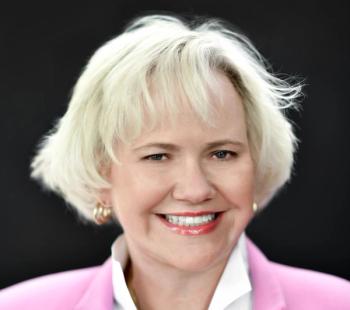
Biden outlines plans to address ‘mental health crisis’ in State of the Union
The president's strategy calls for training more mental health professionals, grants to address burnout in healthcare workers and expanding virtual options for behavioral health.
President Joe Biden called for a focus on mental health in his first State of the Union address, and his plans include more money to train more providers.
Before the speech, the White House pledged that Biden would announce “a strategy to address our national mental health crisis.” His plan includes provisions in his 2023 budget proposal, steps to address the mental health needs of healthcare workers, expanded telehealth access and other measures. A mental health advocacy group called Biden's plans "unprecedented."
"Let’s get all Americans the mental health services they need," Biden said in his speech.
Biden devoted much of his speech to Russia's invasion of Ukraine and other key items in his domestic agenda. But late in the address, Biden included a call to address mental health as part of what he termed a "unity agenda." He also called for full parity in coverage of physical and mental health.
Before the speech, the White House outlined a host of details of the Biden administration's mental health strategy.
As part of this focus on mental health, Biden will sign the
The legislation provides $135 million for training and education programs to reduce burnout and help meet the mental health needs of clinicians. The measure is named in honor of an emergency room doctor who died by suicide after being overwhelmed caring for COVID-19 patients in the early days of the pandemic.
Advocates have said the COVID-19 pandemic has taken a toll on the nation's mental health, but said a lack of providers existed well before the pandemic.
The president’s budget would direct $700 million to help entice more people pursue careers as mental health clinicians. The money would finance scholarships and loan forgiveness programs for those who would commit to working in underserved communities, including rural areas.
The Biden administration also said it expects to award $225 million to add more community health workers and health support professionals to underserved communities. The U.S. Department of Health and Human Services expects to award the grants in the fall of 2022.
Healthcare advocates, including the American Psychological Association, have been pressing the Biden administration and Congress to
Biden’s strategy also calls for expanding access to
The White House said the Biden administration “will work with Congress to ensure coverage of tele-behavioral health across health plans, and support appropriate delivery of telemedicine across state lines.”
In addition, the Biden administration will work with states to identify barriers to access to behavioral health, including limitations of telehealth. There’s been growing attention paid to
The White House said the Biden administration proposes to invest more money for integrating primary care and behavioral health programs, so primary care practices can have more tools to spot and treat mental health conditions.
The administration says it will also help veterans get greater access to mental health services by integrating them more fully into primary care services. Biden iannounced plans to provide more health care and disability compensation to veterans who have suffered due to toxic exposure.
The president is also looking at social media platforms and technology companies and their influence on the mental health of young people.
In the address, Biden pressed Congress on approving stronger privacy protections. Biden also asked lawmakers to ban targeted advertising to children, and urged technology companies to stop mining the personal data of children, the White House said Tuesday.
“We must hold social media accountable for the national experiment they’re conducting on our children for profit," Biden said.
The White House also announced the formation of a 988 mental health services crisis hotline. The health department will launch the hotline this summer.
The president’s focus on mental health in the State of the Union drew praise from health advocates.
Daniel H. Gillison Jr., CEO of the National Alliance on Mental Illness (NAMI), welcomed Biden’s “unprecedented focus on mental health” and called on Congress to offer bipartisan support.
“From expanding our mental health workforce and reimagining our response to mental health crises to increasing access to care and supporting the mental health of our youth and young adults, the President is proposing bold investments in our mental health infrastructure,” Gillison said in a statement. “These investments and policy solutions could not come at a more critical time.”
During the pandemic, about four out of 10 adults have reported symptoms of anxiety or depression, up from about one in 10 adults in early 2019.
The Biden administration has already directed






















































































